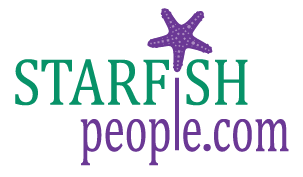What is DISC ?
DISC (Dominance, Influence, Steadiness, Compliance) was developed by Dr. William Marston in 1928 and is one of the most popular models for understanding human behaviour. DISC is one of the most widely used behavioural assessments globally, with several versions available on the market. We use DISC with the majority of our clients who have both specific and general recruitment requirements.
Why use DISC?
Understanding behaviour is critical for all businesses however large or small. As it will have the greatest impact on the teams, in turn affecting the culture and the very make up of your organisation. This will affect performance, team building and motivation.
For this reason, many organisations have chosen to utilise behaviour and personality measures crucially starting with recruitment, and then during induction, coaching, employee development and succession planning.Behavior at the end of the day impacts heavily on the effectiveness, longevity and ultimately the bottom line in businesses across all industries and sectors.
So why has DISC become a requirement?
Its due to the relatively simple way the tool can be used, and how it can be mobilized quickly across all roles and levels of an organisation. The four factors of the DISC model also makes the tool simple to interpret and apply, even for users without extensive experience with psychometric tests or those who have little time to invest in learning a complex model of personality.
How long does the process take?
A profile typically takes 5 – 10 minutes to complete, Its also a quick and easy tool to administer and complete. Allowing feedback to be given in a timely fashion to decision makers with regards to the fit of individual candidates for the organisation.
Can candidates manipulate DISC?
Most DISC tools are pretty resistant to manipulation or faking. This is key in situations where individuals are motivated to present favorably especially in recruitment. DISC is quite sensitive to inconsistent responses and reports will highlight to the administrator when there are concerns as to the accuracy of a candidates individual profile. In addition to this DISC provides a powerful insight into key behavioural traits that will impact in the workplace.
It gives a guide as to candidates potential performance, and guides on things such as approach to problems and challenges, interaction style with others, response to the pace of the environment, and likely compliance with companies rules and procedures. This snapshot equips leaders and managers with the knowledge they require required to maximise individual performance, ensure team effectiveness and increased management capability across the organisation.
Using DISC in recruitment and selection
DISC can play an important role in the recruitment and selection of new employees by complementing existing recruitment practices. Those in favor of DISC suggest that gap between an individual’s natural behavioural style and how they may be required to behave on the job can become difficult and stressful over time. Its therefore key to have alignment between the two. Its therefore desirable, if this can be inferred and explored during the recruitment process through the insight provided by DISC.
We recommend that DISC be used on either all or certainly short listed candidates prior to the face-to-face interview. The information provided by the tool can help facilitate conversation around strengths and possible weaknesses, and on from this development areas and then the preferred working style of the candidate.
When used effectively, DISC can help uncover behaviours or traits that would otherwise not come become evident until the individual is is place, and in many cases when it to late. Such insight provides the interviewer with the opportunity to delve further into specific behavioural tendencies and assess these with the candidate against the particular role they have applied for prior to an employment decision being made.
We recommend that the information presented with the DISC report always be considered as supplementary information in the recruitment process. The description provided by DISC, along with a CV and application form for the interview will provide a well-rounded appraisal of the candidate and help the interviewer come to an informed decision.
Using DISC in development and coaching
DISC is also valuable for existing employees, by sharing DISC reports with the wider team to promote an awareness and understanding of behavioural styles. Identifying similarities and differences in relation to communication preferences, and general working style will provide a better foundation for building on working relationships within teams.
Employees can often benefit from the information DISC can provide by highlighting gaps between their natural behavioural preferences and the behaviour shift required to meet the demands of the job. The two facets of behaviour measured by DISC (natural style and adapted style) provide a meaningful comparison between how an individual would ideally like to approach their role, and how they are actually adjusting their behaviour to meet role requirements.
This gap analysis highlights pressure points and areas of stress which can then be addressed to achieve a better person-role fit. When using assessments such as DISC with internal employees we recommend that you provide sufficient information to participants in relation to the aim of the project or exercise, confidentiality policies, and how the results will be used.
Are you looking to understand more about DISC and how it can be used to improve efficiency? – We are here to support you in managing all people-related functions within your business.
You can contact us by filling out the secure contact form, or send us an email [email protected] or call us on 01243 607357


